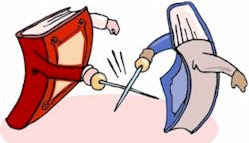

Phantom Effect: Night Shade, February 2016, 285 pages, cover design by Diana Kolsky. The antihero of Phantom Effect is Johnny Deseranto, who murders women who remind him of his mother. In the opening 25 pages, Johnny had a blowout on the way to dispose of his latest victim's body. When a policeman stopped to investigate, Deseranto also killed him, but then crashed his car fleeing the scene. When he got out of the car, his female victim in the trunk got out too, even though she had been dismembered. Johnny fled into a nearby half-dismantled Motel 6, as one would.
In the next 25 pages, inside the derelict motel, Johnny begins to encounter visions from the past. He sees himself as a child, with a tarantula on his head. We soon learn that Johnny's punishment as a boy for stealing a jar of his mother's homemade marmalade was to be thrown in a hamper with a live tarantula. This helps explain the fellow's mommy issues. His next flashback takes him to when his family was renting the upper floor of a house, and Johnny snuck downstairs to spy on the landlord fooling around with a lady friend. Just as he realized the lady friend was his own mother, he was caught literally with his pants down.
Asteroid Made of Dragons: Sword & Laser, 275 pages, April 2016, cover design by David Drummond. Asteroid Made of Dragons is humorous fantasy in the mode of Terry Pratchett. In the first 25 pages, we met a lady mage, Rime, and her assistant/bodyguard Jonas. Jonas rescued Rime after a robbery gone wrong -- an easily forgivable crime, since she was stealing back her own money. Rime decided to travel to Gilead, and Jonas insisted on accompanying her, even though he was exiled from Gilead for killing his last master.
In the next 25 pages, we learn that Rime is being hunted by an old knight resurrected from the dead, who takes a very dim view of magic and those who use it. Meanwhile, Rime and Jonas are on the ship to Gilead. Jonas confides in Rime about his exile from Gilead, which it turns out resulted because he killed the famous knight for whom he squired (one with a different name, but who knows?), at the exhausted knight's own request.
The Battle: This one is a case study in what it takes to advance through the Battle of the Books. To win your first battle, you need to hook me with a strong opening. Both of these books did that, Phantom Effect with an edge-of-your seat scene where Johnny is pursued by a woman he is sure he already killed, Asteroid Made of Dragons with a fun action scene featuring good humor and solid characterization.
To win your second battle, you need to add a strong new story element, or otherwise find a way to ratchet things up a notch. After 50 pages, I'm still enjoying both of these books, but only one of them met this challenge.
Asteroid Made of Dragons continued with the witty writing. For example, this is how Jonas begins the story of his exile from Gilead:
"My father was a baker. We baked bread mostly—loaves for the common folk—though every so often we'd do special things for feast days. Cupcakes, cookies, cakes, all the . . ."This made me smile and it tells us something about the characters. Having said that, though, this section doesn't add a great deal to the story. The new story element—someone hunting Rime—is no real surprise, and the one big revelation is a bit of a let-down: turns out Jonas doesn't really have anything to feel guilty about at all. Also, no new hints at all about that asteroid in the title of the book.
"NO." Rime nearly exploded. "You cannot start the story this way. Are you going to tell me the entire story of your life? Can't you just skip to the part that matters?"
Meanwhile, I very much expected the second section of Phantom Effect to be a prolonged chase scene through the corridors of this Motel 6. Instead, Aronovitz takes the story to a different level. We learn that Johnny's victim was a psychic, and she is taking her revenge on him through his mind. She begins a trip through his past that is unpleasant (for him) and sheds some light on how he became the monster he is as an adult. And this section ends with little Johnny being discovered by his adulterous mother with little-little Johnny in hand. If she stuck him with a tarantula for stealing marmalade, what will she do for this? I kind of don't want to know, except I really really do.
In this second section, Aronovitz figured out a way to broaden his story and pull me further into the tale, making me want to keep reading.
THE WINNER: Phantom Effect by Michael Aronovitz
Phantom Effect advances to the semifinals to face either Company Town by Madeline Ashby or Borderline by Mishell Baker.
To see the whole bracket, click here.



































